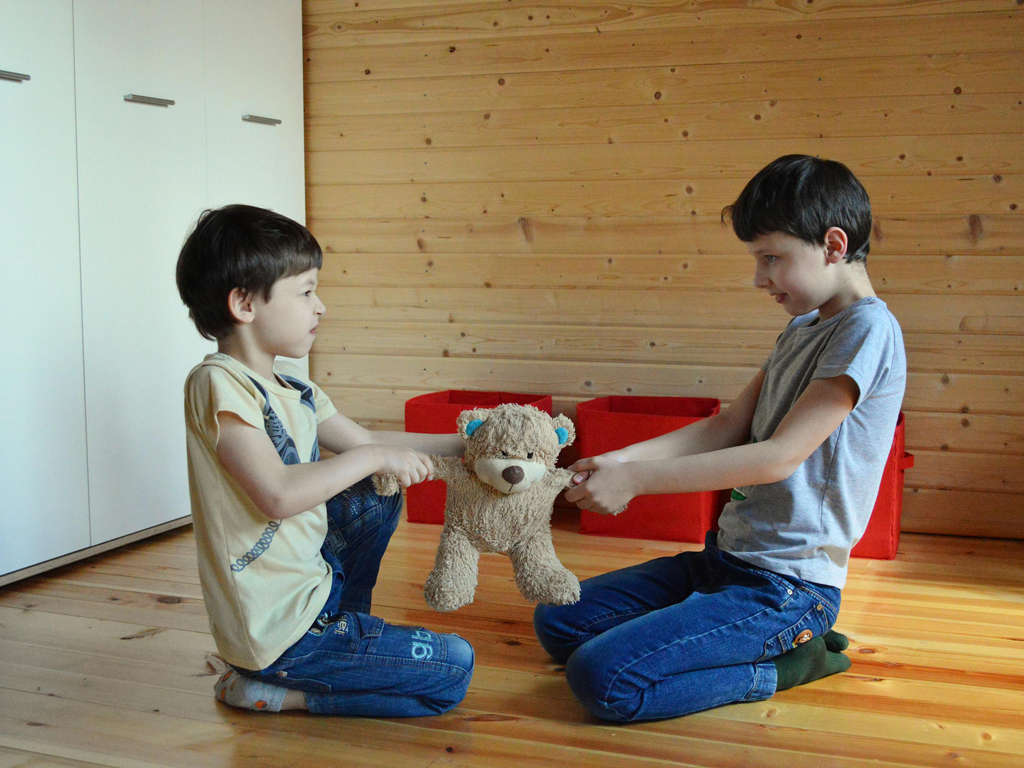by Karen K.C. Gibson
As parents, we believe our children should follow our rules, regardless of the circumstances. We give them consequences when they don’t abide by our rules. Often, we reach our limits and react out of frustration. Harsh verbal discipline, giving negative attention, delayed consequences, physical threats, or unrelated consequences may result in mental meltdowns for both parent and child. Some children are naturally born pleasers. They crave acceptance and fear disapproval. Strong-willed children, however, may be perceived as difficult, stubborn, and argumentative. These children may be rebellious when all they crave is to be heard, understood, and never judged. They speak their mind, which is often mistaken for being disrespectful.

Misunderstood or Misjudged?
According to the Child Mind Institute, children are less likely to understand the connection between their misbehavior and the consequence if there’s a significant time gap between their behavior and the disciplinary action. If children are asked to clean their room and refuse to follow through, waiting a day to administer a consequence reduces the chances of completing the assigned task. They lose motivation to cooperate when they realize there’s no immediate consequence. Specific deadlines and expectations will prevent miscommunication. Strong-willed children may sound argumentative, but they possess a strong need to understand why they receive consequences. Instead of saying they need to be punished for poor behavior, explain expectations. They will be less likely to resist because of frustration if they understand the rules. Blurred rules cause confusion in strong-willed children. Confusion often leads to temper tantrums.

Why Immediate Consequences are more Effective
“I didn’t know you meant to clean my room today,” or “You didn’t say how much of my room needs to be cleaned” are possible excuses that will lead to parental frustration. Tempers flare, and frustrated parents often take away electronic privileges for a month or more. Writing down an agreement, along with its consequences, may help prevent behavioral issues.
If a strong-willed child hears, “If you don’t finish your tasks of making the bed, putting away clean clothes, and putting your dirty laundry in the hamper by 5 pm today, your weekend movie plans will be canceled,” they will understand the expectations and be clear about the consequences. If they actively participate in choosing the consequences, they may experience stronger feelings of ownership while learning self-regulation and gaining a better understanding of their choices. Through active participation in the process, children learn to associate their decisions with their outcomes, leading to improved behavioral patterns. This reduces your child feeling humiliated and feeling that their consequence doesn’t fit the crime.
Stubborn or Successful: The Long-Term View
Keep in mind that stubborn children may evolve into high-achieving adults who successfully climb the corporate ladder. Parents who question whether their obstinate child may struggle navigating adulthood may be surprised when their child transforms into a creative entrepreneur exceeding their expectations. When temper tantrums explode, remember to deep breathe and remember that strong-willed children thrive when they influence their environment and make their own decisions. Offer options instead of demanding a task’s deadline. “Would you like to brush your teeth at 7 pm or 7:30 pm?” gives them a choice rather than making them feel they must comply with demands.
Peacemaking Strategies for Siblings
Here are some ideas for creative peacemaking strategies instead of demanding apologies if siblings are arguing and tempers are escalating:
- Set a timer for 1 minute, and request siblings to smile and hug each other.
- Standing nose to nose with a sibling for 2 minutes changes their mood because of the silliness of an unusual interaction.
- After taking 3 deep breaths, each sibling sits crossing their legs while sitting with their knees touching. Ask them to share a positive trait about their sibling.
- Moods can change when environments change. Set a timer for 10 minutes and request siblings to run around the yard or each room of the house.
- Choose a fun book and each sibling takes turns reading a page for 10 minutes.

The key to guiding strong-willed siblings from boiling with anger to simmering with peace is to teach them the importance of emotional regulation. When children understand that it’s normal to be upset, and increase their EQ skills, they learn effective ways to process their feelings in healthy ways. Teaching empathy by having each child put themselves in their sibling’s shoes offers insight on building better relationships, managing overwhelm, and preparing them for the real world as adults.
Encourage Reflection, Not Rejection
Instead of enforcing time-outs as a punishment, here are options that offer reflection time. Parents may feel time-outs need to be a negative consequence, but reflection time offers children an outlet to diffuse their anger.
- Read a fun book or watch a show then share their favorite scenes.
- Create a calm-down area where they listen to calming music while practicing deep breathing and expressing their feelings through drawing. Scribbling with crayons and ripping their paper afterwards helps process their anger.
- Dedicate 15 minutes where they can express their feelings without judgment or lectures about what triggered their outburst. Ask them how they can handle future anger situations without losing their temper. Brainstorming ideas automatically melts away anger.
- Develop a relaxation chart that shows methods for achieving calmness. This offers different calming techniques, such as counting to ten or selecting a preferred scented lotion, before giving themselves a foot and hand massage. A fun creative option is participating in a favorite activity like puzzles or finger painting. New calming methods can be added to the chart whenever children think of different relaxation ideas.
The Hidden Gifts of Strong Willed Children
Most parents fail to realize the hidden gift of their strong-willed child. Stubborn behavior may be signs of leadership skills, assertiveness, and critical thinking. While raising children who are quick to anger can be challenging, they can be the best teachers for parents, teaching patience and compassion. When you feel frustrated with endless “why” questions, take a deep breath, and envision your child’s passionate curiosity leading to creative discoveries.





